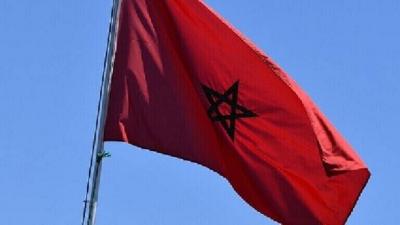The potential leadership of Abdul Rahman Al-Maghribi, also known as Muhammad Abati, over Al-Qaeda following the killing of Ayman al-Zawahiri poses security implications for Morocco. The Moroccan newspaper "Hespress" highlighted that a warning issued by the U.S. State Department regarding the repercussions of al-Zawahiri's death has heightened the alertness of Moroccan security agencies. The possibility of Al-Maghribi heading "one of the largest terrorist organizations in the world" represents both a symbolic and strategic danger for the country by associating the organization with Morocco and increasing its potential spread in rhetoric, alongside the attraction of various vulnerable groups exploited by terrorist factions for executing individual operations.
Furthermore, "Hespress" noted that the international warning anticipating possible reactions from Al-Qaeda to al-Zawahiri's death presents the world with challenges of potential retaliations that raise the alertness of security forces. This is particularly relevant given the varied operational methods of the organization, which occasionally resorts to individual operations in different locations.
As of now, there has been no statement or claims from Al-Qaeda regarding al-Zawahiri’s death; however, the numerous branches of the organization and its activities in the Sahel, close to Morocco, make all scenarios feasible. The likelihood of Abdul Rahman Al-Maghribi, a close associate of al-Zawahiri, leading the organization further complicates matters for Morocco.
The paper pointed out that the U.S. State Department discussed "intelligence indicating that terrorist organizations continue to plan attacks against U.S. interests in various parts of the world. These attacks may employ a wide range of tactics, including suicide bombings, assassinations, kidnappings, and explosions."
Mohamed Al-Tayyar, a university professor and security expert, mentioned that "the killing of Ayman al-Zawahiri, the leader of al-Qaeda, is a significant blow to the organization, and there is no doubt that the announcement of his death has caused considerable unrest within the group." He added that "al-Qaeda is experiencing a noticeable contraction amid the emergence of ISIS and other jihadist organizations." He believes that the elimination of al-Zawahiri will push al-Qaeda to intensify the activities of "inghimasi" fighters and "martyrs," or what are known as lone wolves, to carry out quality terrorist operations to demonstrate their capability to persist and the readiness of their elements.
The Moroccan academic and security expert warned that "terrorist organizations that align themselves with al-Qaeda, such as Katibat al-Nusra, continue to pose a significant threat in the African Sahel region adjacent to Morocco. Thus, the associated risks with al-Qaeda remain present in Morocco."
The expert concluded that if Abdul Rahman Al-Maghribi, a prominent leader in the organization and former commander of al-Qaeda in Afghanistan and Pakistan, were to succeed al-Zawahiri, the risk of al-Qaeda would multiply in Morocco. He urged the importance of "upholding the proactive approach adopted by the Directorate General of Territorial Surveillance and other Moroccan security agencies in combating terrorism, capable of addressing all threats and risks related to al-Qaeda or others."
In his recommendations, he clarified that "the adopted proactive approach has proven effective, in addition to combating all forms of vulnerability and poverty, continuing to open developmental projects, and engaging all components of Moroccan society within a community policing framework that contributes to countering all threats and risks facing the nation."




